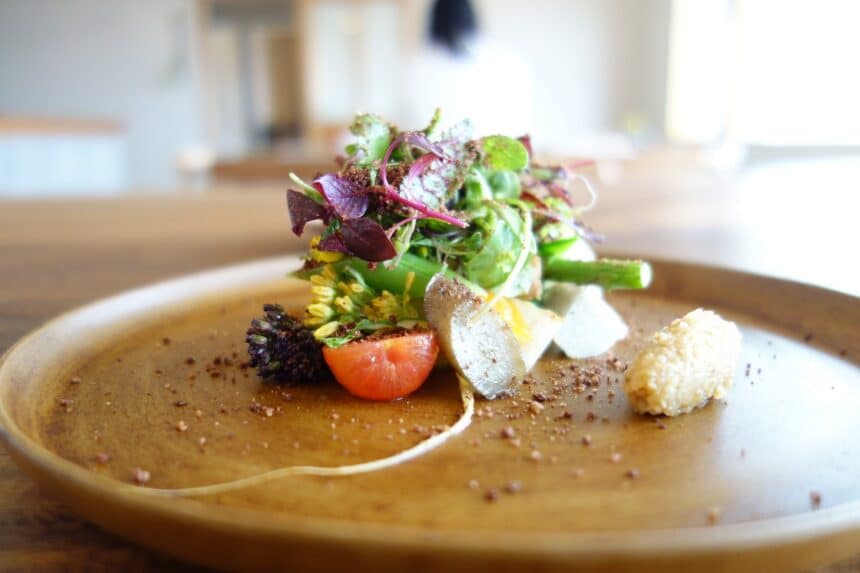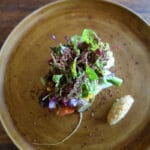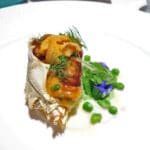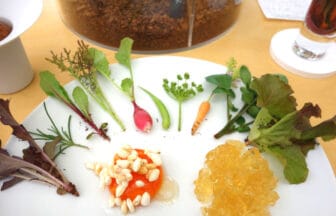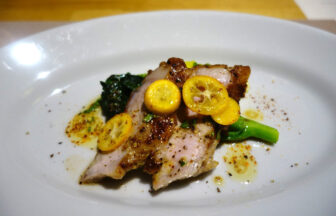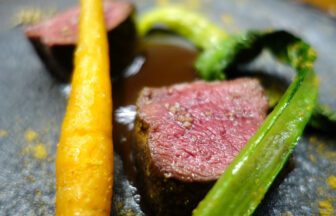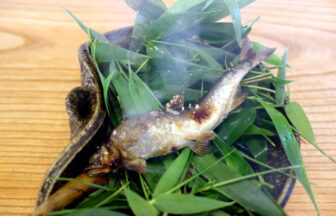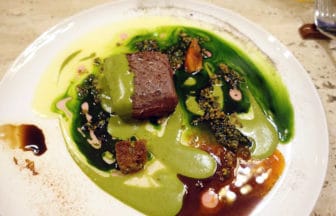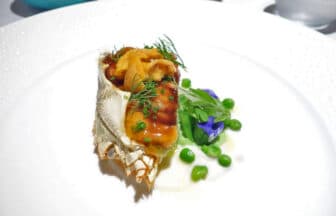Although it is a dish with a gentle taste that makes full use of local ingredients, it has a sharp presence.
Head to Nakanoto in search of the hottest Italian restaurant in local gastronomy.
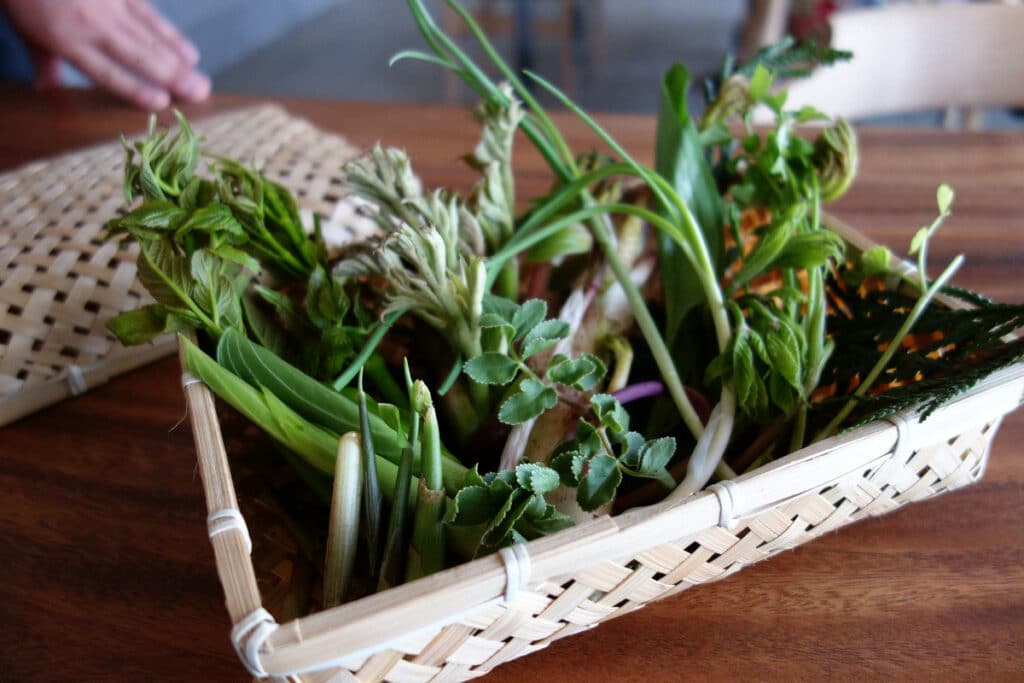
Ave. Budget: Lunch 15,000-20,000 JPY, Dinner 15,000-20,000 JPY / “Michelin Guide Ishikawa 2021” 1-star & green-star
Restaurant features
The chef, who had spent eight years training at an Italian restaurant in Tokyo, felt that Noto was the place to find all kinds of meat, fish, and vegetables in connection with producers all over the country.
Realizing that thought, it opened in September 2016.
Furthermore, in 2020, it will be relocated and renewed as an auberge to “enjoy Noto to the fullest.”
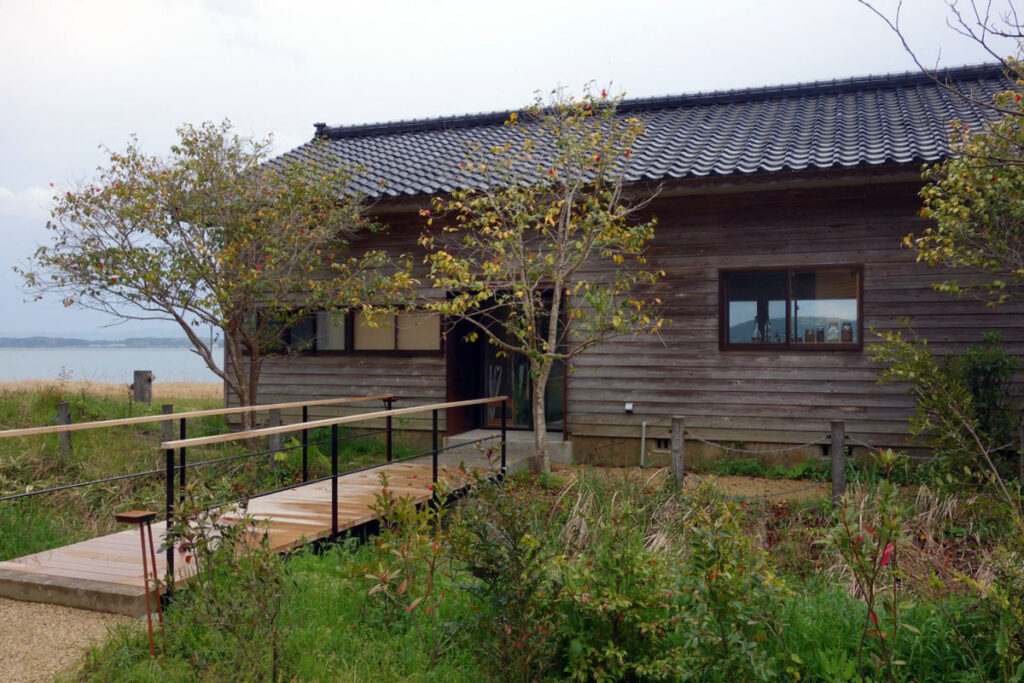
Personally, one of the biggest hits in the first half of 2021.
Not only in Japan, but also in Suzhou, China, the suburbs of Chiang Rai, Thailand, Bali, Indonesia, northern Vietnam, and Manila, the Philippines, the traditional food culture and ingredients of the local area are used with a contemporary sense.
There is, but it is a restaurant that is not inferior even if you line up in it.
(Added on May 20, 2021)
If I felt like I had discovered a treasure, I got 1 star and green star in the “Michelin Guide Hokuriku 2021” announced on May 19th.
You were already a member of the real shop.
Seaside house restaurant
Access is not good.
It’s a 17-minute walk from Kasashiho Station on the Noto Railway, so it’s not that you can’t go by public transportation, but it’s more convenient to have a car.
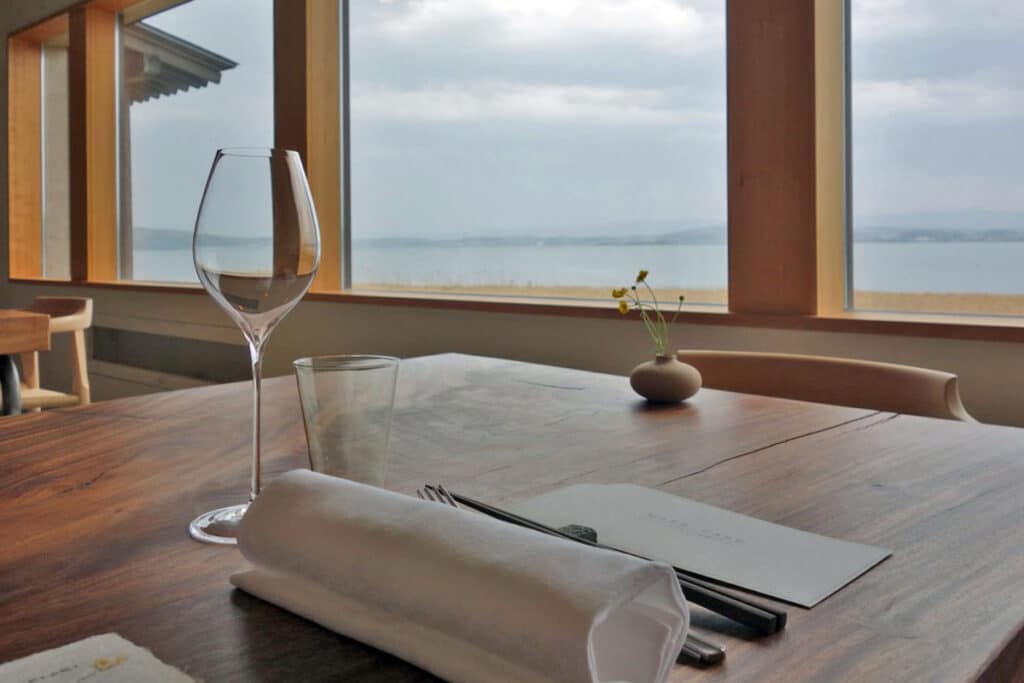
Go through the guest house building to the restaurant facing the seaside.
Nanao Bay, which can be seen from the window, is calm most of the day, and when the weather is fine, the mountain range beyond the bay can be reflected like a mirror.
I will concentrate on the table.
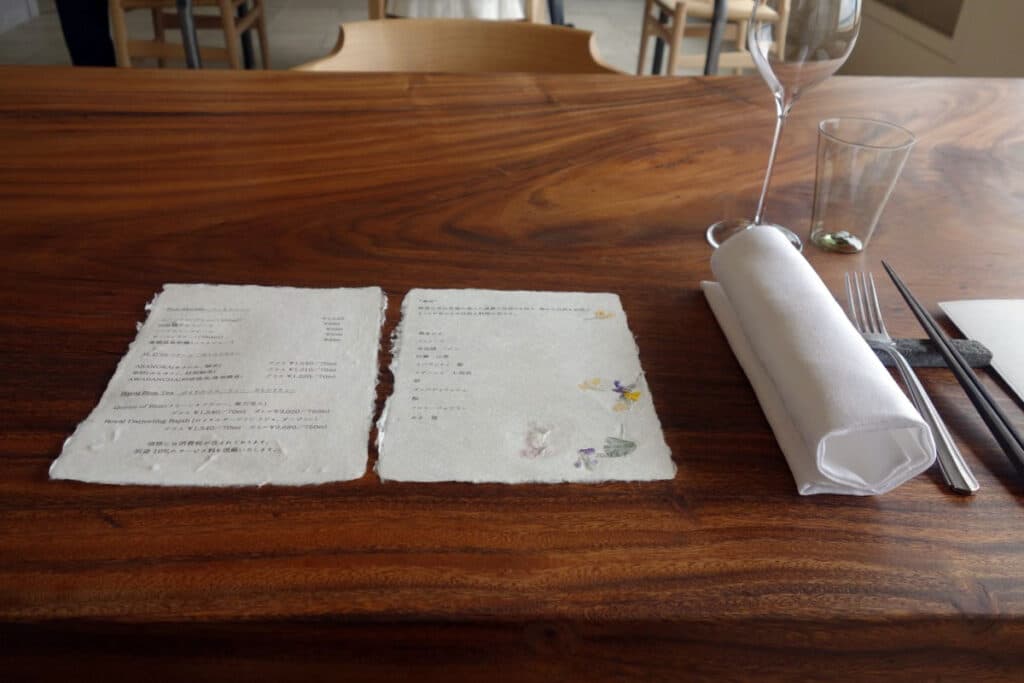
The handmade Japanese paper menu on the table will inspire you.
Traditional paper making in the village at the entrance of Wajima.
“Soba Gaki”
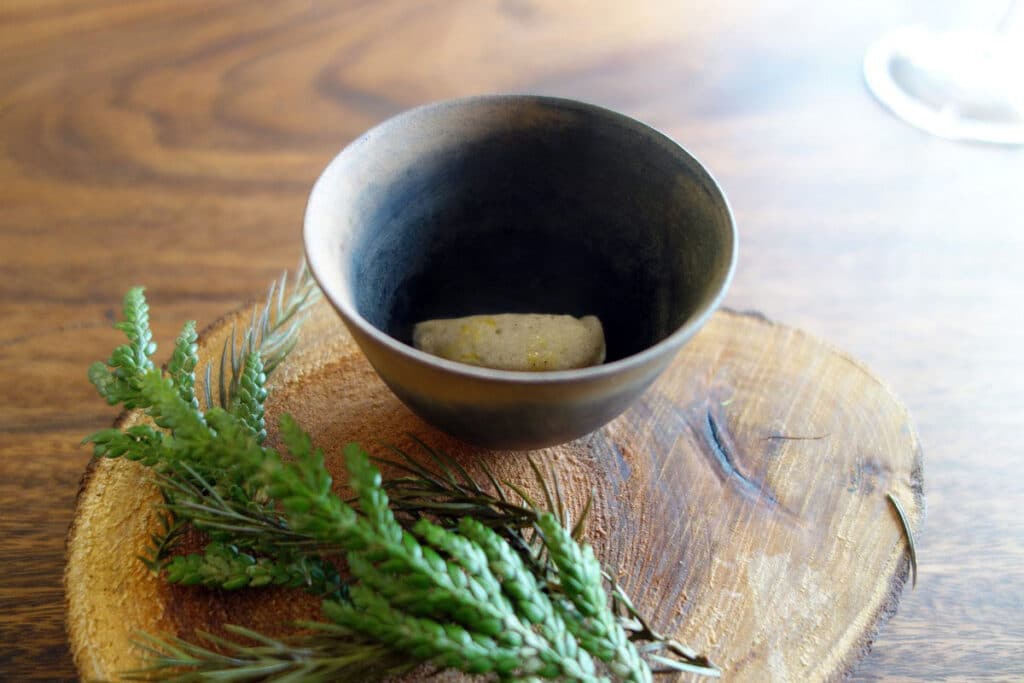
It was a surprise from the beginning, but the dish before the amuse was soba noodles.
It may be an idea unique to Hokuriku to warm the stomach with something warm first.
We put it in the soup of “Noto 115”, which is a local log shiitake mushroom, and finish it with citrus oil such as hassaku.
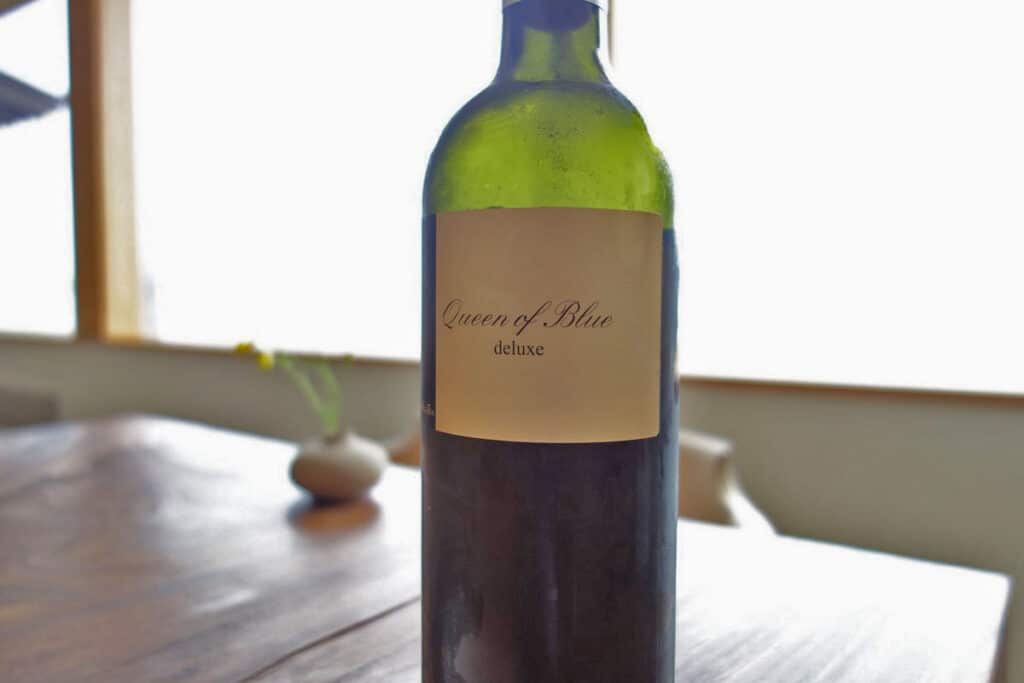
Since I had to drive a car, my drinks were non-alcoholic and mainly tea.
First of all, “Queen of Blue” using Oriental beauty cultivated by biodynamic farming.
Amuse bouche
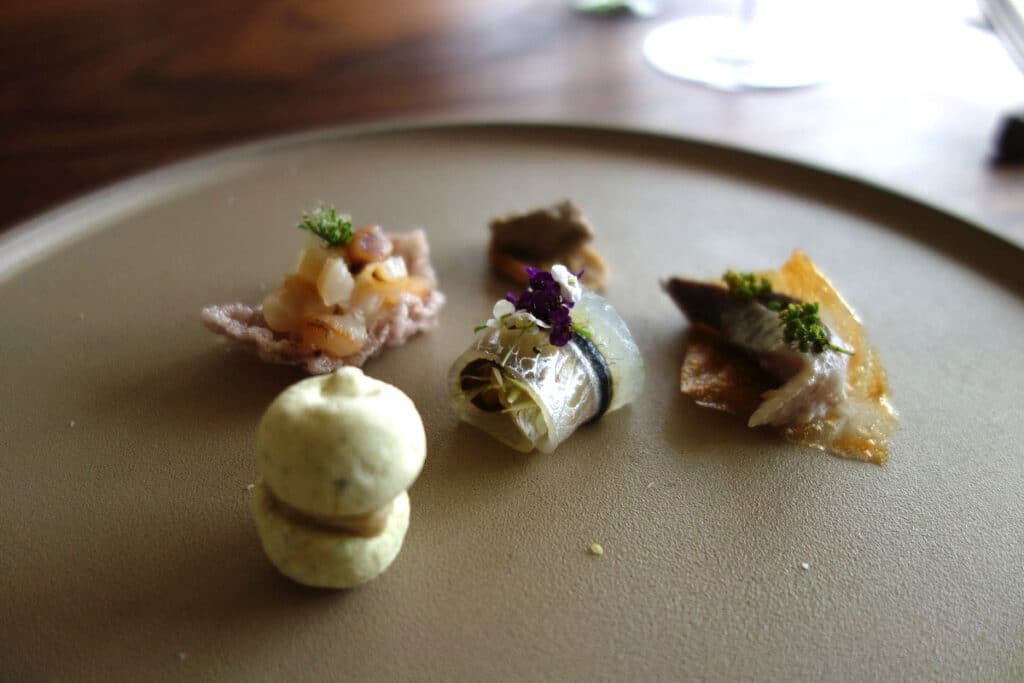
Anchovies, halfbeak with ascetic garlic vinegar, sardine, clams, whale paste.
Red Squid, Nobil
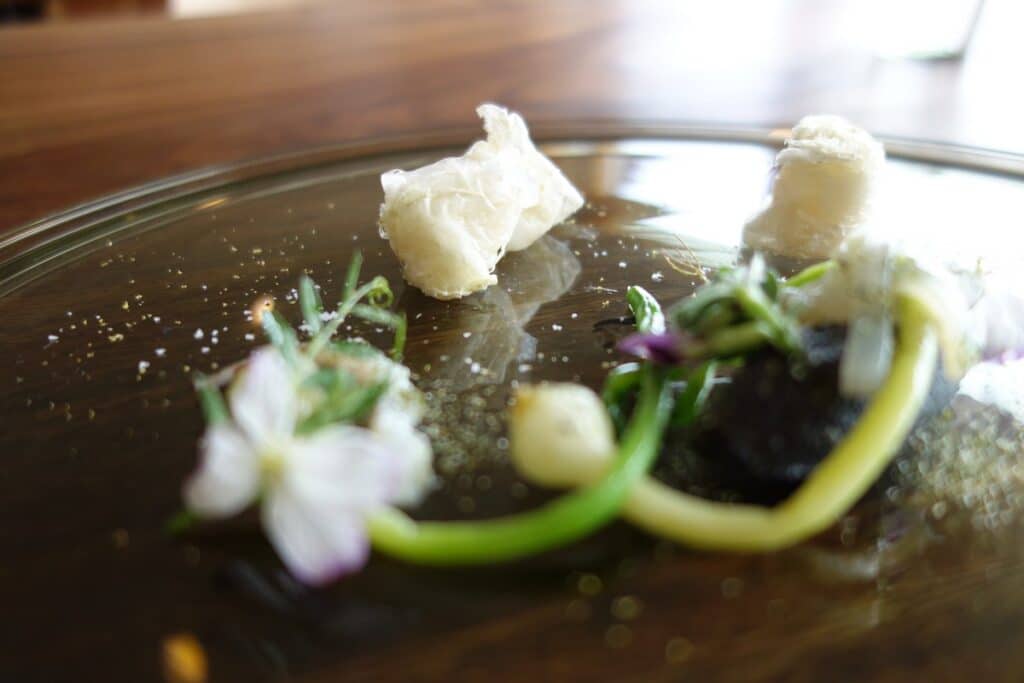
Red squid wrapped in celery root, squid ink potato salad, and wild radish flowers.
The menu is available all year round.
Oysters, wild vegetables
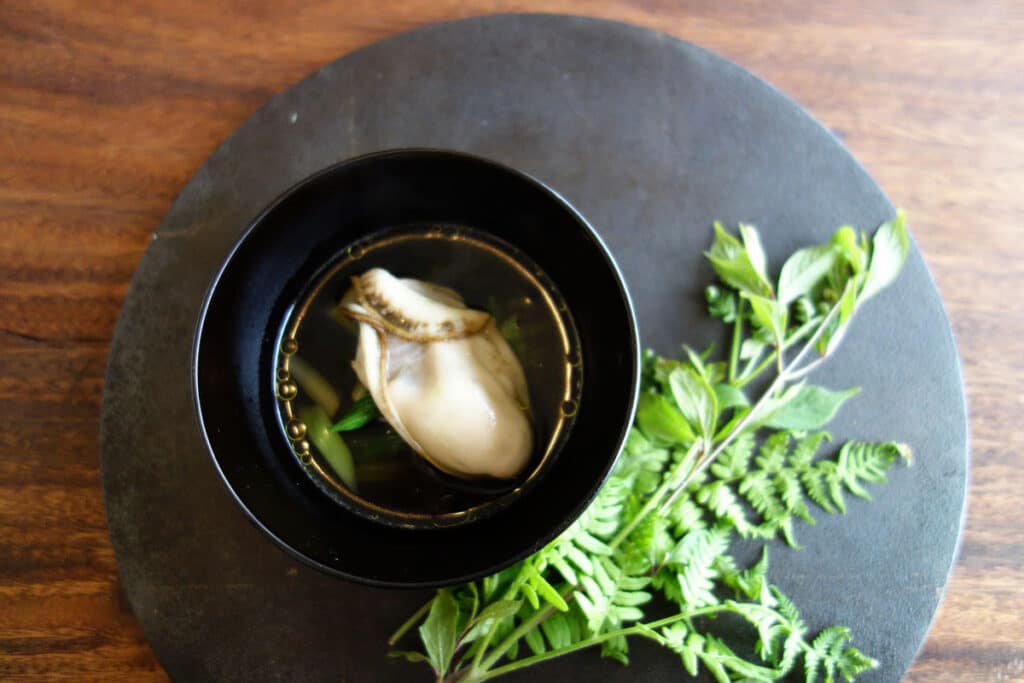
True oysters are said to have been raised in a clean water field with no subsoil water.
I had the impression that the taste of oysters was determined by the nutritional value of the subsoil water, but I was impressed by the deep flavor of the oysters, which slowly accumulated nutritional value without relying on that.
A soup made from Noto turkey.
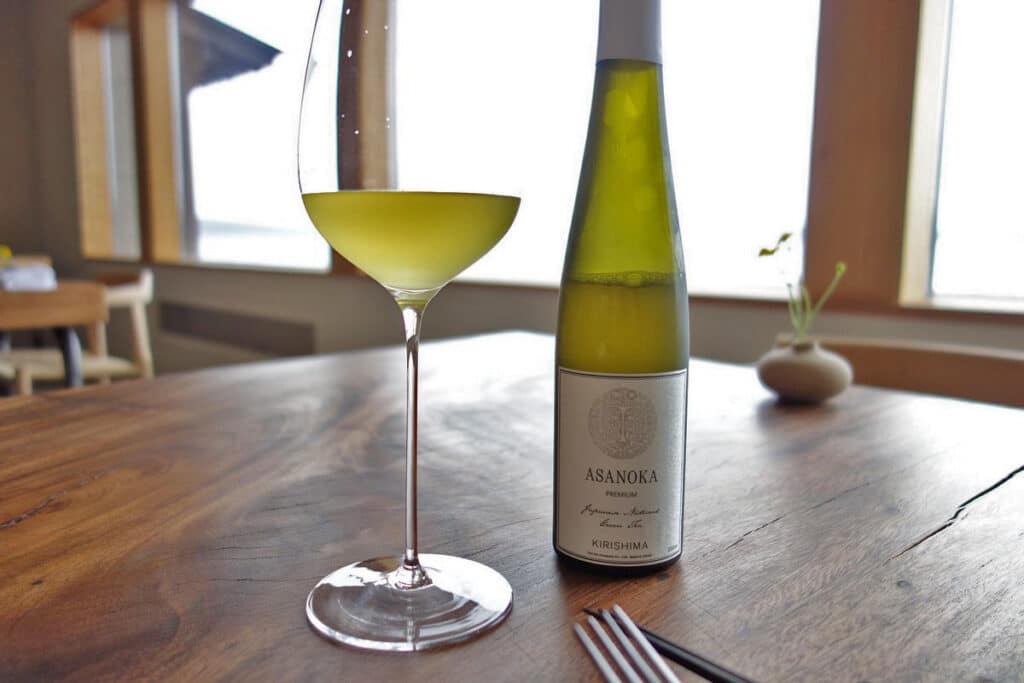
The second cup of tea is from Kagoshima, which recently surpassed Shizuoka in terms of production volume.
It seems that there are more variations.
Spaghetti, Warabi
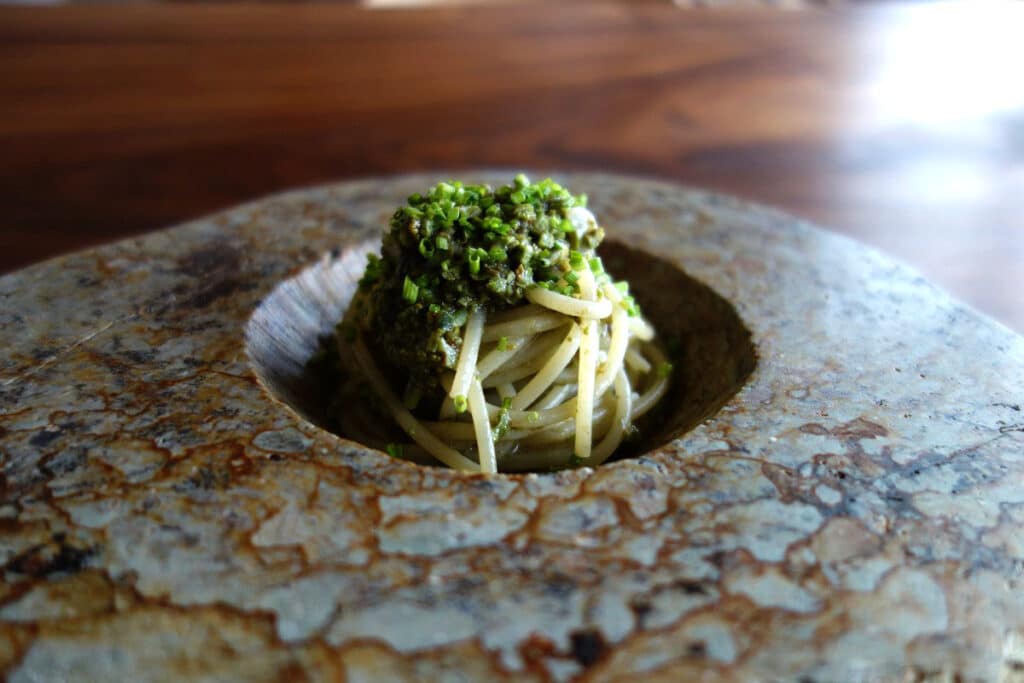
Spaghetti made with bracken collected from the back mountain by all the staff.
Ishiri and chives are added to balance it out, but it’s full of rustic flavor.
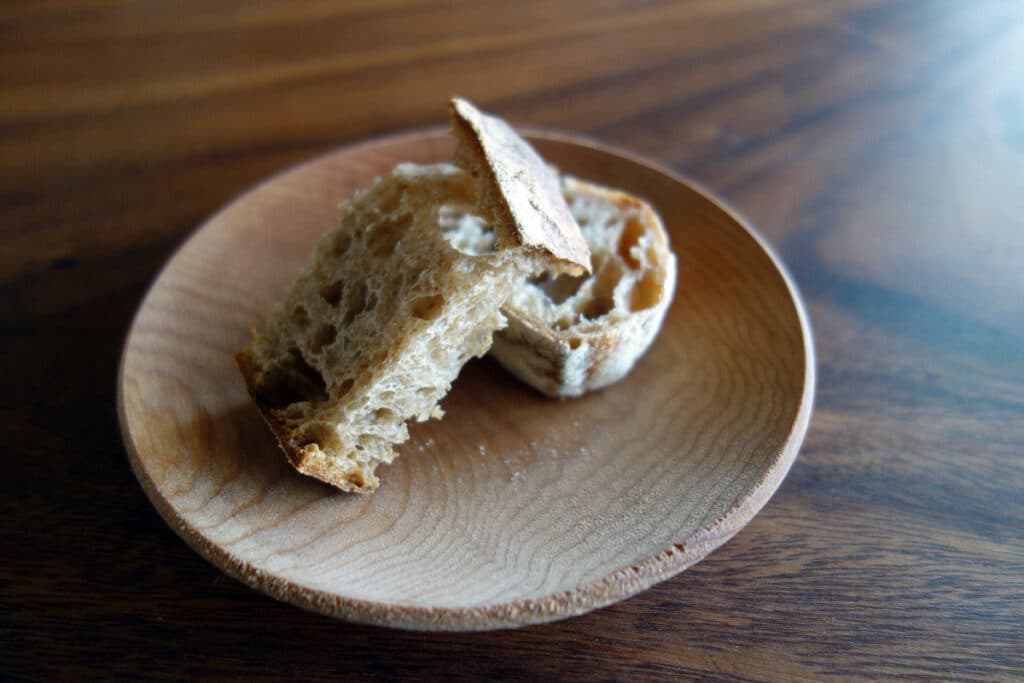
Bread from Noto’s popular shop “Tsuki to Pierrot”.
The bread in the foreground is baked from spelled wheat.
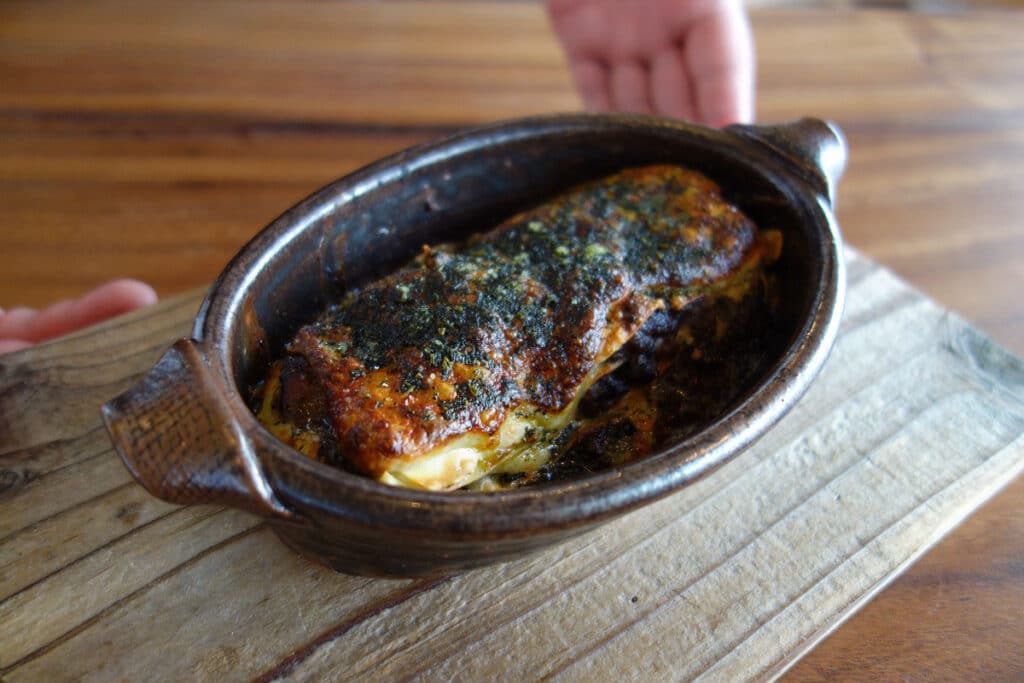
Oh, after all, looking at the oven dish after taking it out makes my appetite arouse.
Lasagna turkey
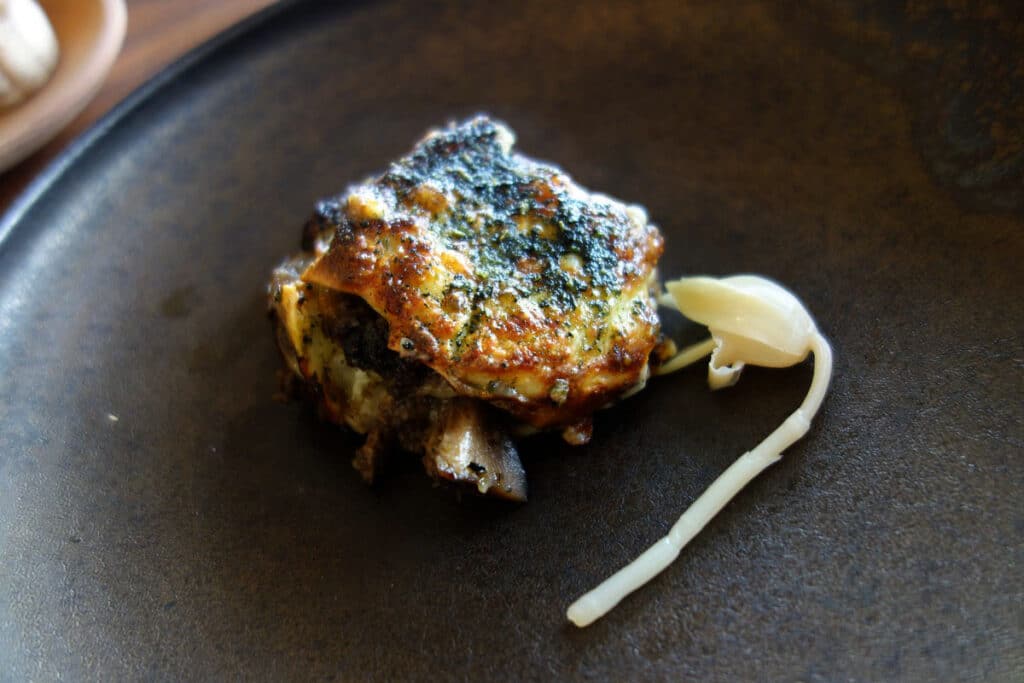
Lasagna made with Noto turkey used in oyster soup.
It seems that almost all parts are used, such as the heart and liver, as a paste.
Field
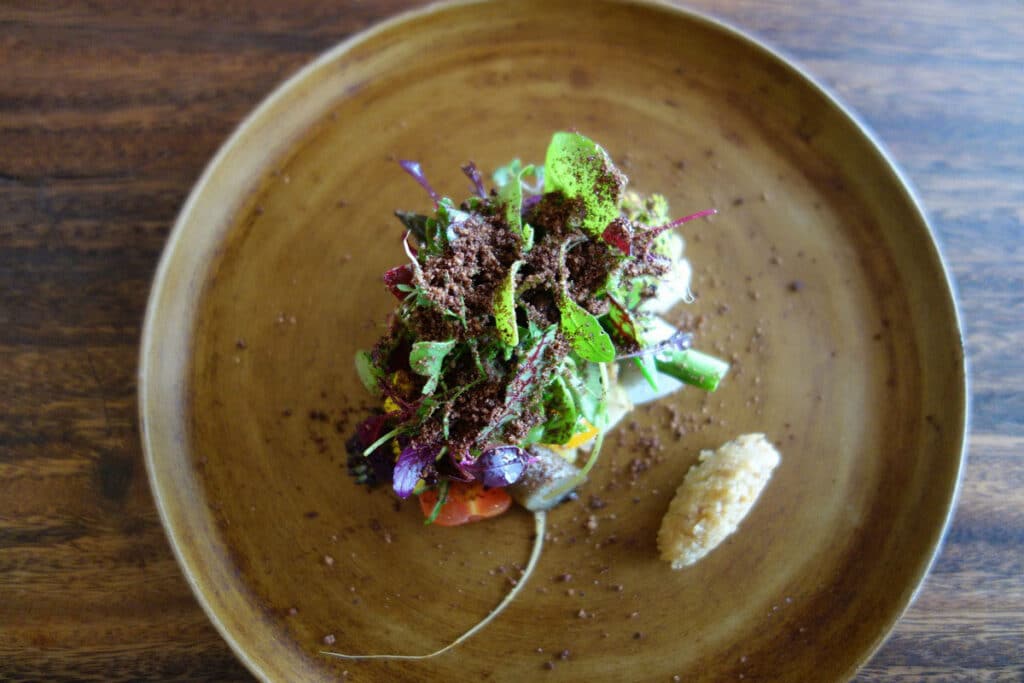
As the title symbolizes, the 40 kinds of vegetables harvested at local Nakamoto Farm and Taka Farm are used in different recipes to create a salad.
Yuzu miso, peanut walnuts, and homemade persimmon vinegar are used as dressings, and cocoa, red wine, and potato powder are used as spices.
Fish soup
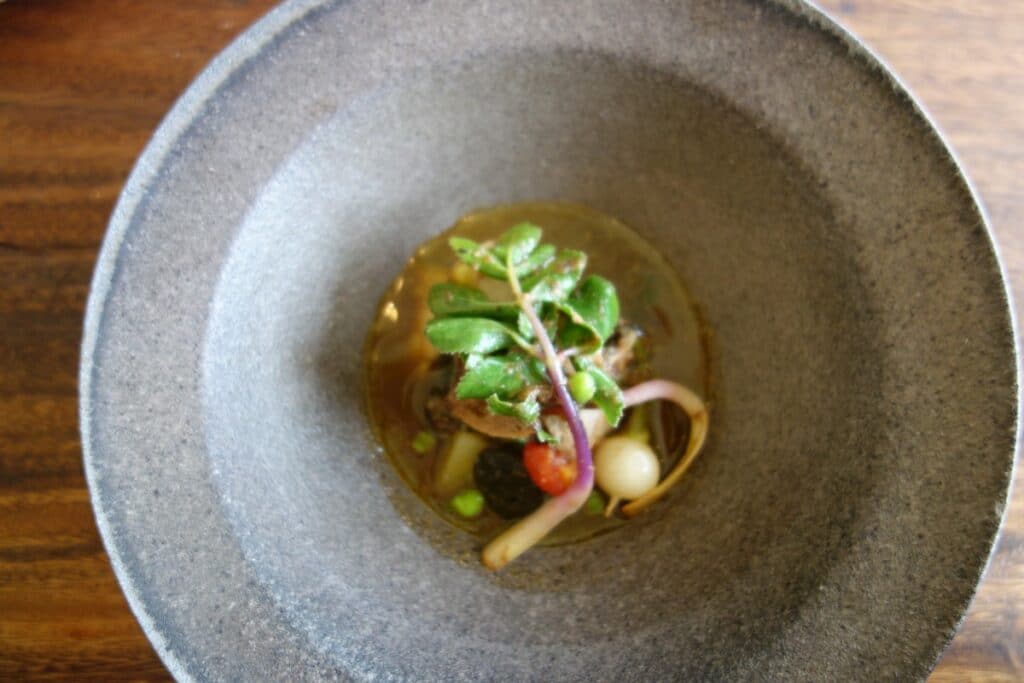
A fish soup inspired by the local cuisine of the port town of Livorno in Tuscany.
Black soy and abalone are used as ingredients, and the soup is made from a variety of fish.
Whale
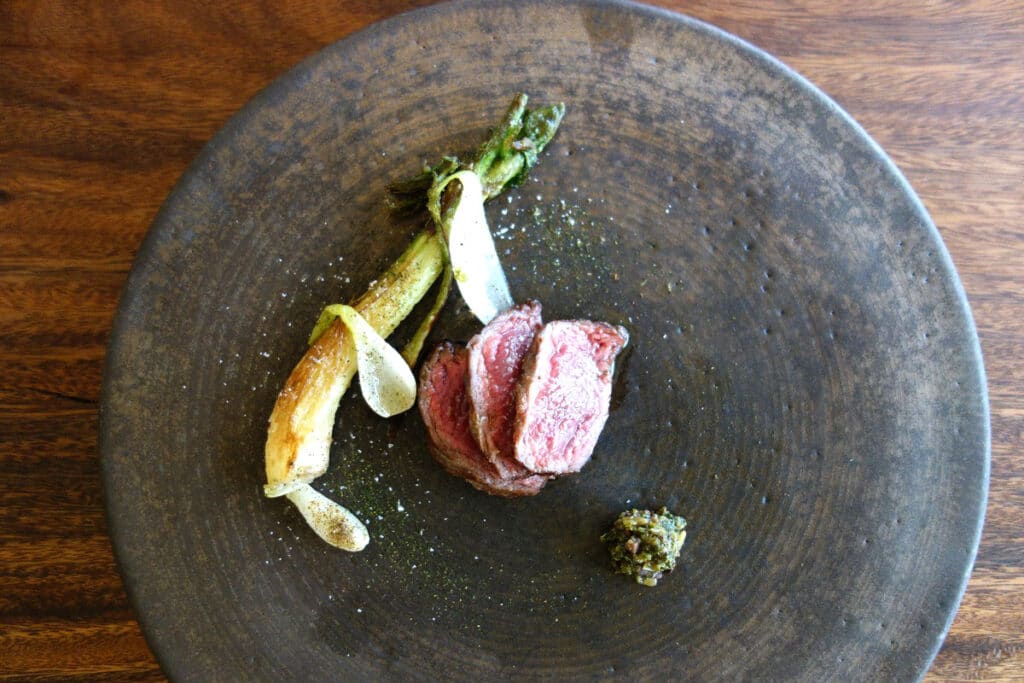
The main meat dish was also unexpectedly made of whale.
I heard that there is a master of Ikejime at the Noto fishing port, and sometimes whales are caught.
Served with seasonal asparagus and leaf wasabi tapnade.
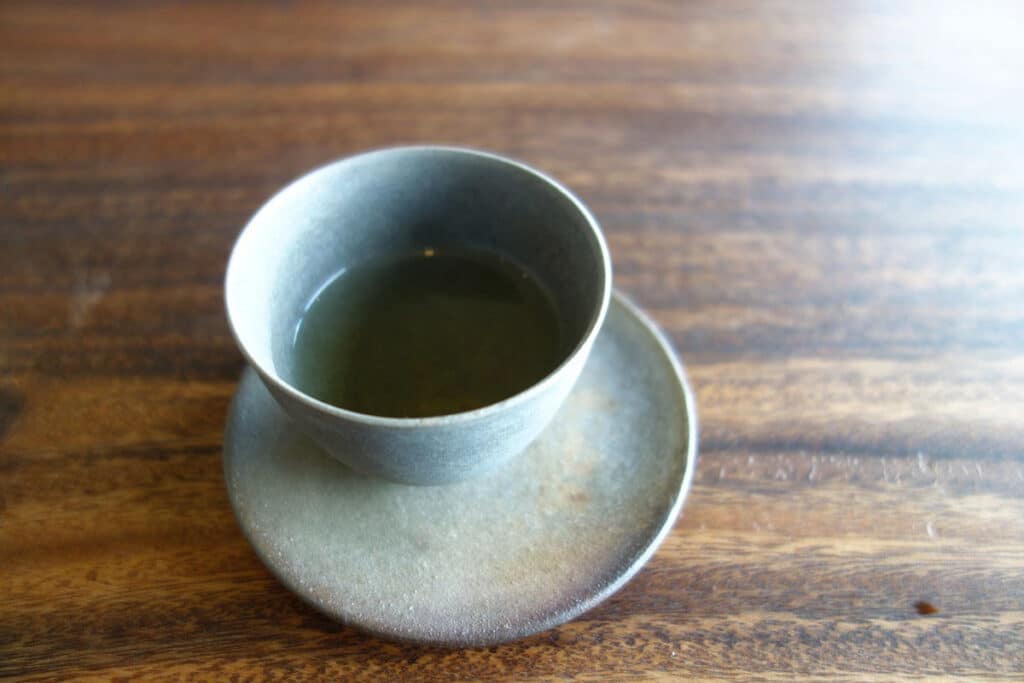
Kuromoji tea, which is starting to attract attention as a Japanese herb tea, is refreshing.
I think I can pick it up near me.
Fromage Blanc
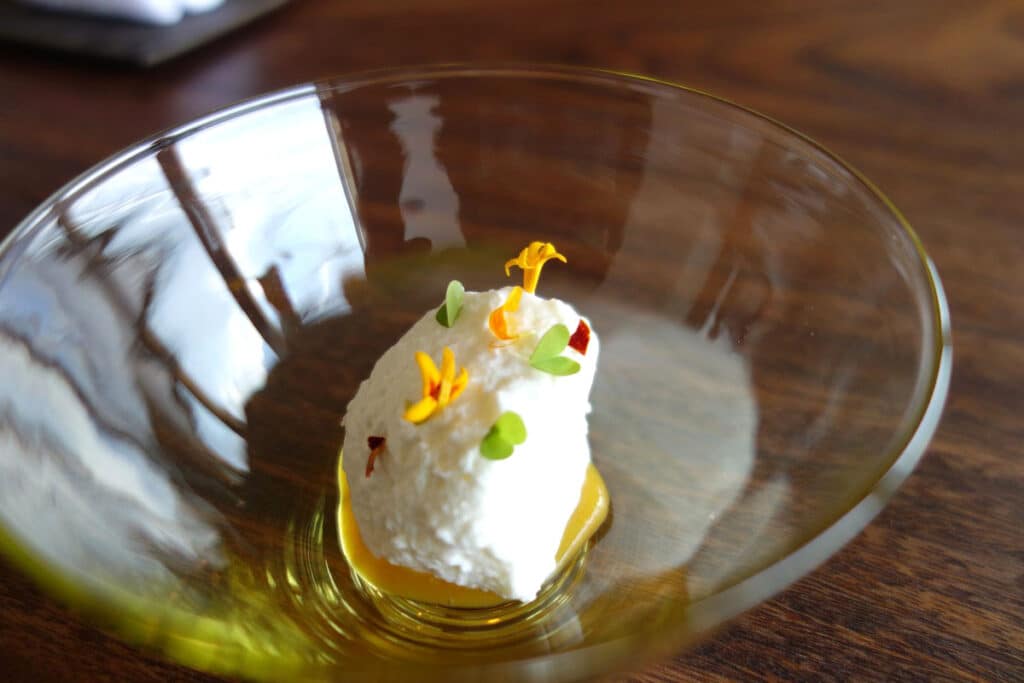
The first dish of Dolce is fromage blanc.
It looks like a modern and urban style, and it uses local milk, so it depends on the creator.
Bonnet, strawberries
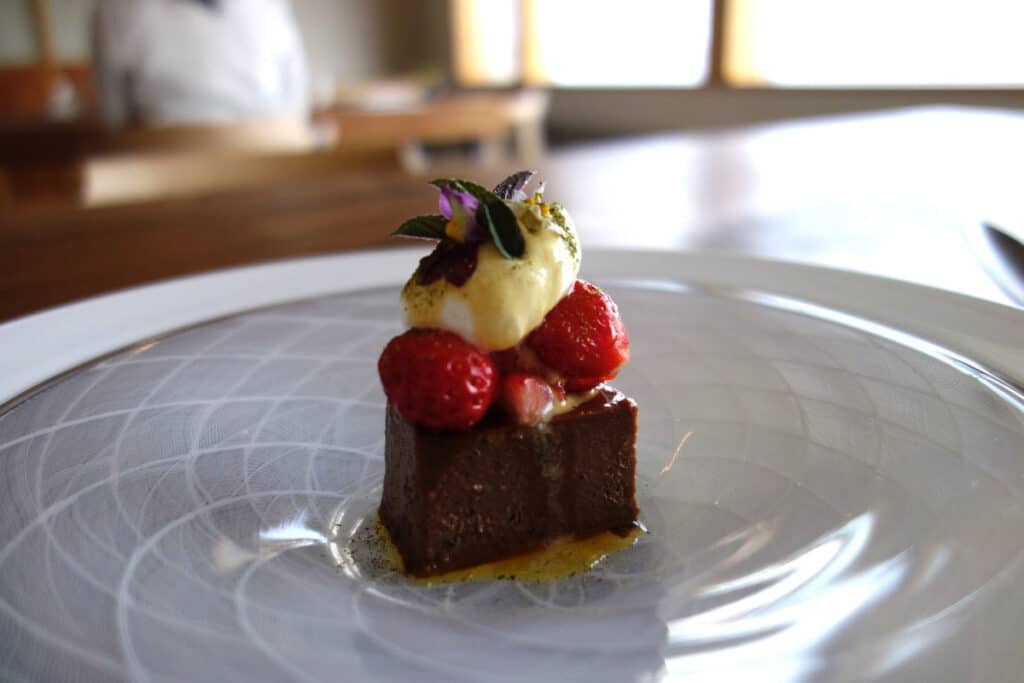
The second dolce dish is a chocolate cake “Bone”, a chocolate-flavored pudding from Piedmont in northern Italy.
With strawberries and herbs from the neighborhood.
Petit-four
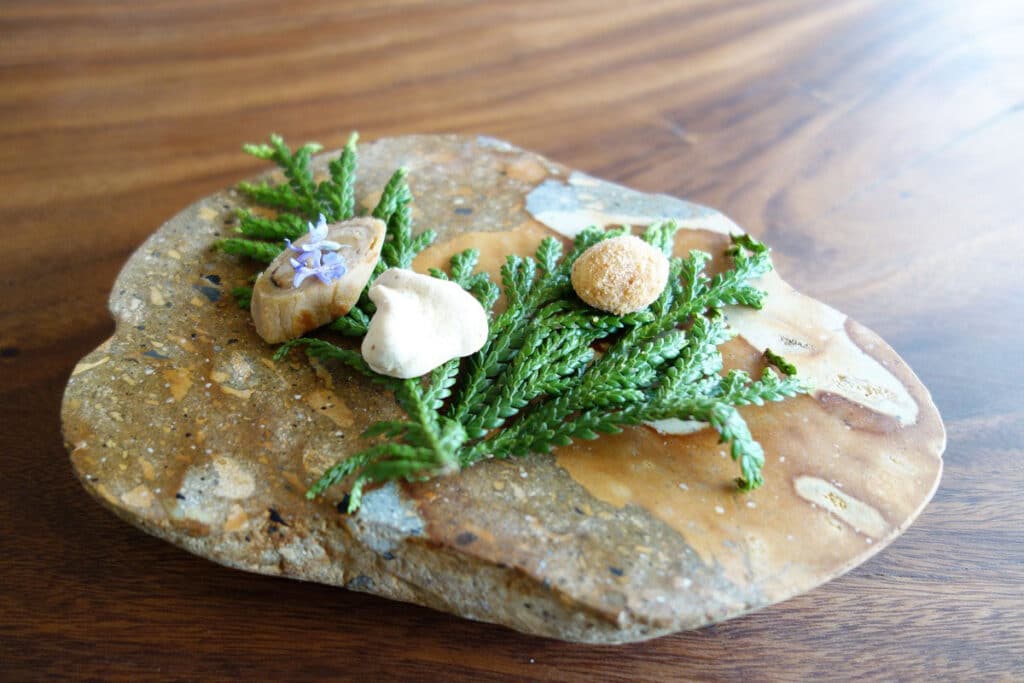
After course drink
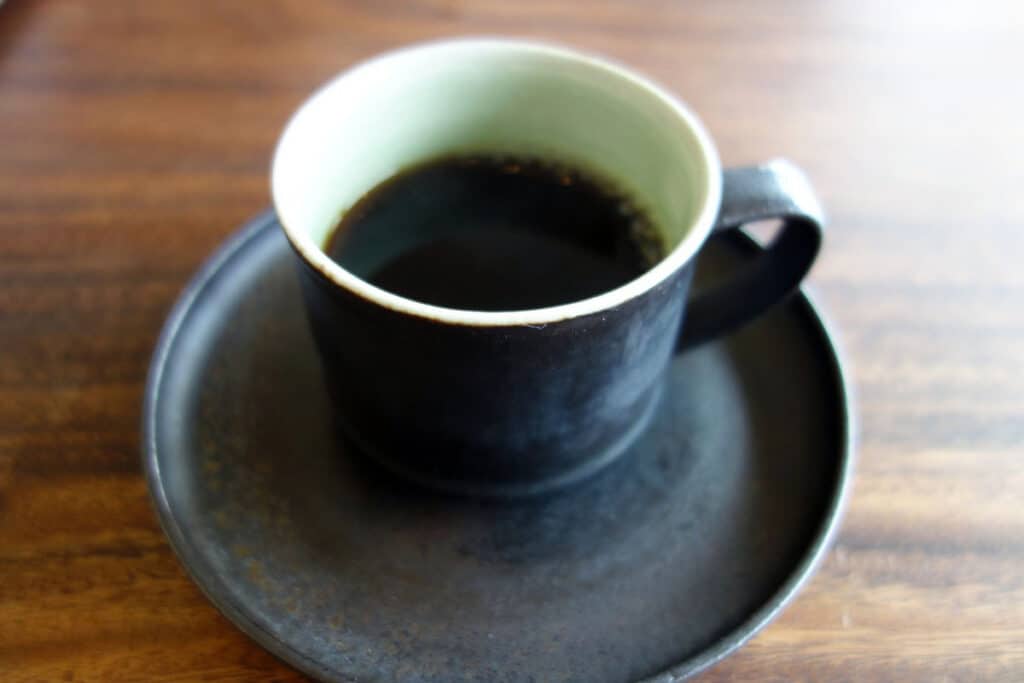
The coffee was delicious, but I also like the vessel.
It seems that almost everything, including cutlery, is made by a local artist, but it was a warm restaurant where you can feel that only a glass of water is special.
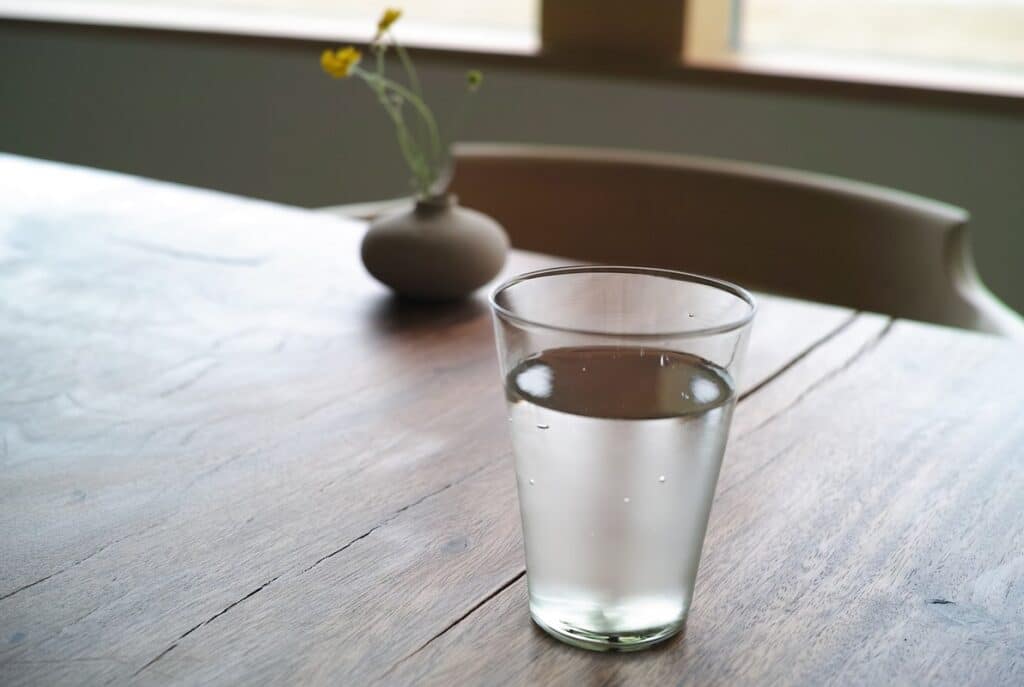
Menu
【Dinner / Lunch】
“Stagione” 14,520 JPY
*Menus and prices are for reference only. Please note that this may change depending on the season and availability of ingredients.
How to Reserve
By phone or web. Web immediate reservations are accepted at Pocket Concierge.
Map & Access
A 17-minute walk from Kasashiho Station on the Noto Railway.
About 20 minutes by car from downtown Nanao.
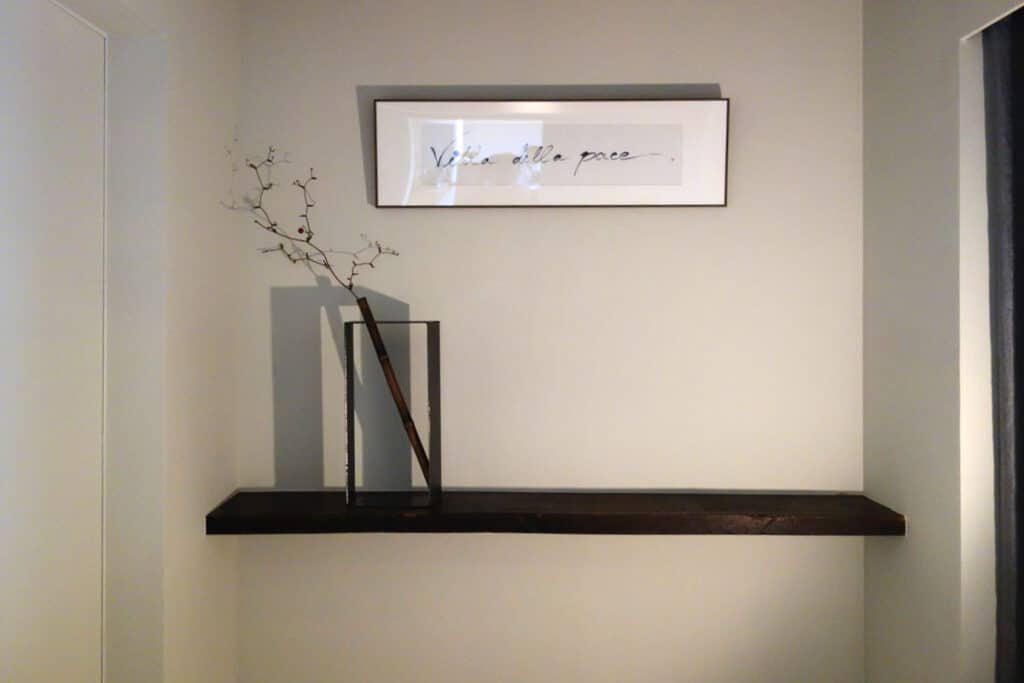
Shop Info: “Villa della Pace“
Business Hours: Lunch 12:00-L.O. 13:00, Dinner 18:00-L.O. 20:00
Holiday: Irregular
Telephone: 00767-88-9017
Address: 26-1 otsu ha bu, Shiotsu, Nakashima-machi, Nanao-shi, Ishikawa
Official web Check the information on Tabelog
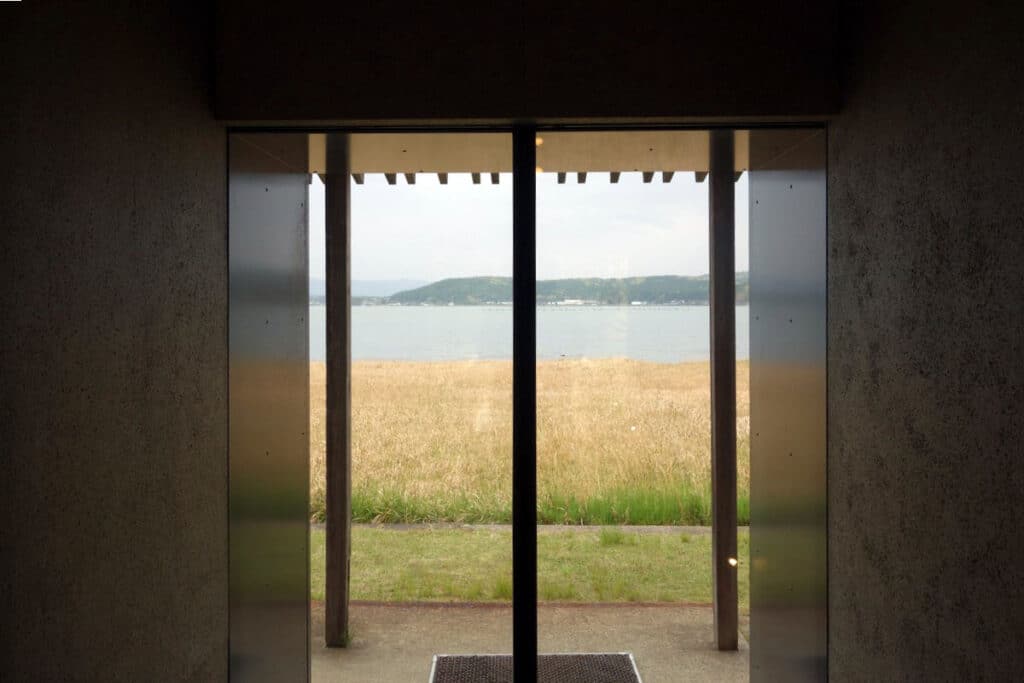
List of Michelin starred restaurants in Ishikawa Prefecture▽
List of Michelin green starred restaurants in Ishikawa Prefecture▽
